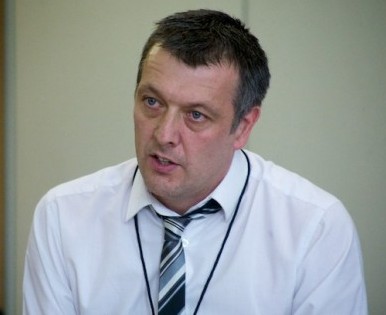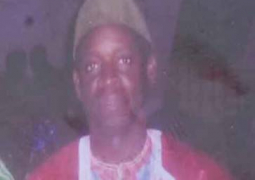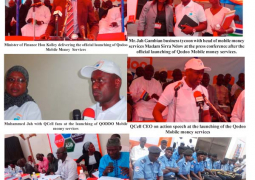
As the election approaches, journalists in the United Kingdom well-known for constantly probing politicians from different political parties, irrespective of their status in society, have issued a series of urgent 'pledges' to political parties, and demanded that all journalists see to it that such assurances are fulfilled in the 'interest of the society, as well as the economy of the country.'
In a formal letter addressed to this correspondent, a few minutes ago, Jeremy Dear, the General Secretary of the National Union of Journalists (NUJ) in Great Britain and Ireland, revealed that the "UK general election on May 6 is important for the future development of the economy and society" and, therefore, the pledges made to the politician is so vital in that respect.
The General Secretary added: "It is important, too, for the future of journalism, as the NUJ steps up its campaign to defend jobs and standards in the media...
"We have asked your local parliamentary candidates to pledge that they will work to ensure the future of public service broadcasting, including local news - at the BBC, ITV, Channel 4 and Five."
He stressed that these institutions must be properly resourced, maintained and strengthened by investing in quality programmes, and that there are no further funding cuts for the BBC, as well as to oppose the privatisation of Channel 4.
It is important to note that journalists from both the print and electronic media are vigorously opposing the privitisation of Channel 4 to 'avoid possible interference by anyone.'
The Channel is a UK public-service television broadcaster and, even though it is largely commercially self-funded, it is also publicly owned. It was established to provide a fourth television service to the UK that would break the 'duopoly' of the License Fee-funded BBC.
Therefore, the journalists would not like any kind of interference as far as the Channel is concerned.
However, Mr. Dear reminded that 'journalists can hold candidates to account before the election in a way that has become almost impossible in an age of stage-managed news conferences and pre-scripted sound bites.'
He also stressed the need to support all freelance journalists in the country and further revealed 'work to support legislation introducing the default recognition of moral rights for all freelance journalists.'
Mr. Dear stressed the need 'to strengthen self-regulation of the press, including making press standards a major remit of the work of the Press Complaints Commission, widening its membership beyond a narrow band of media proprietors and supporting the introduction of a conscience clause for journalists.'
The General Secretary, who is also vocal when it comes to unions and the protection of journalists and other workers, both within and outside the UK, outlined the need to 'support and strengthen freedom of information legislation, and to ensure that anti-terror and privacy legislation does not adversely impact on the rights of journalists and photographers.'
He called on all journalists to make "Your Vote Count Campaign" a priority, as it gives 'parliamentary candidates the opportunity to sign up to the NUJ's election pledge, outlining a series of commitments to support journalists, public service broadcasting, journalistic rights and what they will do to oppose funding cuts and redundancies in our industry."
Meanwhile, as journalists put their case across, political parties are now busy canvassing votes by not only knocking on doors to explain their manifesto verbally, but also calling on voters to give them 'a chance.'



